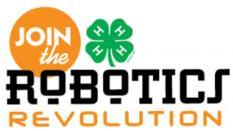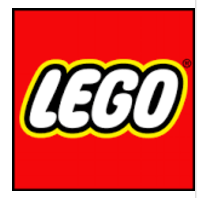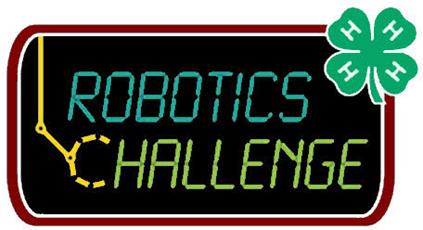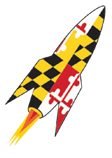The next 4-H Engineering Camp will be in 2025. Stay tuned for information about the NEW Maryland 4-H Engineering Days coming this Summer!
The State 4-H Electricity/Energy contest is on hiatus until further notice. Coming in 2024: NEW State 4-H Drone Contest!
Maryland 4-H has a long history of offering in-depth and hands-on experiences involving Engineering. This includes our Engineering Challenges at the State Fair and Engineering Camp every Spring. More information about these 4-H Engineering opportunities, including helpful resources and event information, follow.
http://www.egfi-k12.org/about/
https://www.engineergirl.org/
https://www.kidwind.org/
http://ithare.com/fields-of-engineering-overview/
For more specific information about Maryland 4-H Engineering programs, Mark DeMorra, 4-H STEM Specialist, at mdemorra@umd.edu.
4-H Engineering Days
More information about these new STEM events in the Spring & Summer is coming soon!
Engineering Camp:
One of the greatest weekends in the Spring is the 4-H Engineering Camp! Located at the Harford County 4-H Campgrounds (The Rocks), its purpose is to introduce some of the numerous Engineering projects available through 4-H and to provide hands-on experiences to prepare youth for some of the county, regional, and state contests. In addition to in-depth exploration of Engineering projects, there will be fun challenges that will test youth's ability to use the Engineering Design Process to solve problems and achieve goals. Topics that have been featured include large tractor operation, welding, aerospace, computers, environmental engineering, GPS/GIS mapping, and underwater robotics.
Location: The Rocks 4-H Camp, Street, MD
- The MD 4-H Engineering Camp is for 4-H youth aged 12-18 (4-H age determined by youth's age on January 1 of that year). Youth must be enrolled in Maryland 4-H using the 4-H Online system to participate. There is a cap of 40 youth that can participate. Registration is on a first-come, first-served basis determined by the date/time the registration is submitted through 4-H Online.
4-H Engineering Challenges at the Maryland State Fair
Bicycle Safety: The State Fair "Bicycle Safety Challenge" tests youth's ability to operate, fix, and ride bicycles safely and effectively. The contest consists of a written test, Parts ID, and skills demonstrations by youth on to drive in a straight line, figure 8, on a city street, with double obstacles, and with double zig-zag obstacles. Resources youth can consult in preparation for the Bicycle Safety Challenge follow:
Purdue University Bicycle Safety Challenge: https://www.asec.purdue.edu/naengr/Bicycle.pdf
Bicycle Universe-Bike Laws in MD: https://bicycleuniverse.com/bicycle-laws/bike-laws-in-maryland/
Bike Law Blog-MD Bike Laws: https://www.bikelaw.com/2019/04/maryland-bike-laws/
Small Engine: The "Small Engine" Challenge at the Maryland State Fair evaluates youth knowledge of the safe operation and maintenance of small engines, present in many common devices such as lawn mowers, generators, tillers, and more. This is done through a written exam, parts ID, and a visual presentation given by youth. Resources youth can consult in preparation for the Small Engine Challenge follow:
Purdue University Small Engine Challenge: https://www.asec.purdue.edu/naengr/Small%20Engine.pdf
John Deere Manuals & Training Resources: https://www.deere.com/en/parts-and-service/manuals-and-training/
Lawn Tractor (Learn to Earn): The "Lawn Tractor" event at State Fair is designed to offer 4-H youth an opportunity to demonstrate their knowledge and skills in the areas of lawn care, business management, tractor operation, maintenance, and safety. The day of the challenge at state fair features a written exam, parts ID, safe operation course, and a tractor driving course. Resources youth can consult in preparation for the Lawn Tractor (Learn to Earn) Challenge follow:
Purdue University Lawn Tractor Challenge: https://www.asec.purdue.edu/naengr/Lawn%20Tractor.pdf
John Deere Manuals & Training Resources: https://www.deere.com/en/parts-and-service/manuals-and-training/
Tractor Operator's Contest (4-H & FFA): The “Large Tractor” event at State Fair is a joint challenge that both Maryland FFA and Senior-aged 4-H youth can participate in. It is meant to test their skills with operating agricultural tractors safely and effectively, including proper maintenance and care. The challenge consists of a written exam, practical exam, and 4 driving exams:
- 2-Wheel Drive Safety
- 2-Wheel Drive Operation Course
- 4-Wheel Drive Safety
- 4-Wheel Drive Operation Course
Competitors will be ranked both overall and via their specific program (4-H or FFA). Resources youth can consult in preparation for the Tractor Operator’s Contest follow:
Purdue University Tractor Operator's Safety Challenge: https://www.asec.purdue.edu/naengr/Tractor.pdf
Purdue 4-H Tractor Curriculum: https://extension.purdue.edu/4-H/projects/4-h-project-tractor-and-mower-safety-and-operator-skills.html
John Deere Manuals & Training Resources: https://www.deere.com/en/parts-and-service/manuals-and-training/




